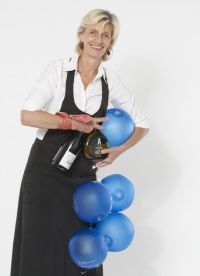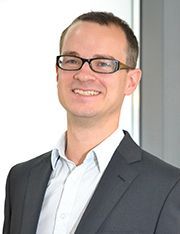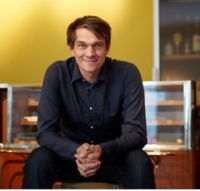Germans are drinking more and more wine, and at the same time they have more and more opportunities to expand their knowledge about wine. This is true for private wine drinkers as well as for employees in gastronomy and trade who deal with wine on a daily basis, to industry professionals who produce, buy and/or market wine. According to the German Wine Institute (DWI), average wine consumption in Germany rose by 0.7 litres - i.e. one bottle - to 21.1 litres per person between 2012 and 2013. Ten years ago, the annual per capita consumption was still 19.8 litres of wine.
In line with the stronger demand for wine, the range of training and further education courses on the subject of wine in Germany has also grown considerably: specialist wine shops organise wine tastings and seminars for their customers, chambers of industry and commerce (IHKs) offer courses, professional further education institutes have specialised, and universities differentiate their courses of study. The market offers almost everything - from rather sociable tastings to multi-level programmes and internationally recognised certificates. The courses of the Wine and Spirit Education Trust (WSET) are considered the international standard in wine education, and the "Master of Wine" (abbreviated MW) is the highest, because most demanding, private educational qualification in the wine world. Participants can apply for financial support for many certified courses.

|
| Stefan Metzner (Photo: Weininstitut München) |
"The opportunities for further training on the subject of wine for interested amateurs are currently huge and wide-ranging," confirms Astrid Zieglmeier, head of the Gastronomy & Indulgence department at the IHK Academy in Munich. "The offer ranges from wine courses to guided wine tastings, trips to wine-growing regions, wine portals on the internet and a large selection of literature on the subject. For professionals as well as for career changers who want to become professionally saddle-fast, we can also ascertain a variety of offers."

|
| Astrid Zieglmeier (Photo: IHK Academy Munich) |
"The range of advanced wine training courses for wine enthusiasts and professionals is larger than ever before. Among them, there are some large providers on the German market who offer their seminars in a very professional and demand-oriented manner," observes Manuel Bretschi, head of department for training and further education in the Gastronomy & Trade department at the German Wine Institute (DWI) in Mainz. "The DWI is one of the most important providers of training and further education in the wine industry. The DWI's seminars, which are primarily intended for professionals from gastronomy as well as specialist and food retailers, are also popular with wineries, cooperatives and cellars for the further training of their employees or for customer loyalty. In over 30 years, more than 100,000 seminar participants have already been trained."

|
| Manuel Bretschi (Photo: German Wine Institute) |

|
| Johannes Jentgens (Photo: Viniversitaet) |
Their importance is again underlined by Stefan Metzner: "The range of wine seminars of various types and quality leads to general confusion and uncertainty among students, but also among employers who cannot assess the real qualifications of diverse 'yodelling diplomas'. The Wine and Spirit Education Trust (WSET) offers sound, tried and tested training with international recognition. The training provided by the largest wine school in the world is now available in 26 languages and always maintains the same high standard. The requirements for the trainers are strictly regulated and are reviewed to maintain the high standards. Finally, the highest level of modular training is so highly regarded that it is recognised as an entry requirement for the Master of Wine course."
Metzner's managing director colleague Bernhard Meßmer of the Munich Wine Institute elaborates on the point, but first takes it a little further: "In Austria, even in restaurants and inns that are far off the beaten track, you often find a good wine list and staff who know a lot about wine. That gives me a lot of pleasure as a guest and I like to order a second glass or even a whole bottle. Unfortunately, we are still a long way from that in Germany. Many restaurateurs have so far failed to recognise the potential and are criminally missing out on additional turnover through wine sales and customer loyalty." In a sensible wine training course, employees from the gastronomy and retail sectors are not only taught the right way to handle wine, but there is also a focus on the combination of wine and food. "Especially the joint enjoyment of wine and food and the mutual enrichment of the partners are still little in the awareness of consumers in Germany," says Meßmer. Furthermore, he said, it is essential that students develop a sure sense of how to describe and assess wines in addition to theory. This helps with qualitative purchasing and supports one's own confidence and competence when talking to customers.

|
| Bernhard Meßmer (Photo: Weininstitut München) |
According to Meßmer, the WSET courses differ from all other offers he is aware of because of the "enormously broad international acceptance of the degrees and certificates": "Due to the fact that the WSET is active in a large number of countries and has more than 40,000 students every year, the certificates have global weight and are becoming more and more popular with internationally active companies from the wine trade or the hotel industry. Another aspect that should not be underestimated is that the standardised wine language that we are conveying to more and more wine professionals, but also to private wine lovers, makes it easier and more precise to exchange ideas about wine. At the same time, the individuality of good wines and the emotions associated with them do not have to fall by the wayside."
Further education courses with a WSET certificate are state-subsidised in Germany, although the regulations for the corresponding education vouchers vary depending on the federal state. WSET courses are also offered by the Weinakademie Berlin and Heilbronn University, among others. According to the perception of Professor Dr. Michael Brysch-Herzberg from Heilbronn, consumers interested in wine are now "very well informed"; attending a wine seminar is now "no longer exotic".
To Part 2 of the article series: Wine competence in the hospitality industry
To part 3 of the article series: Dynamic development at the universities